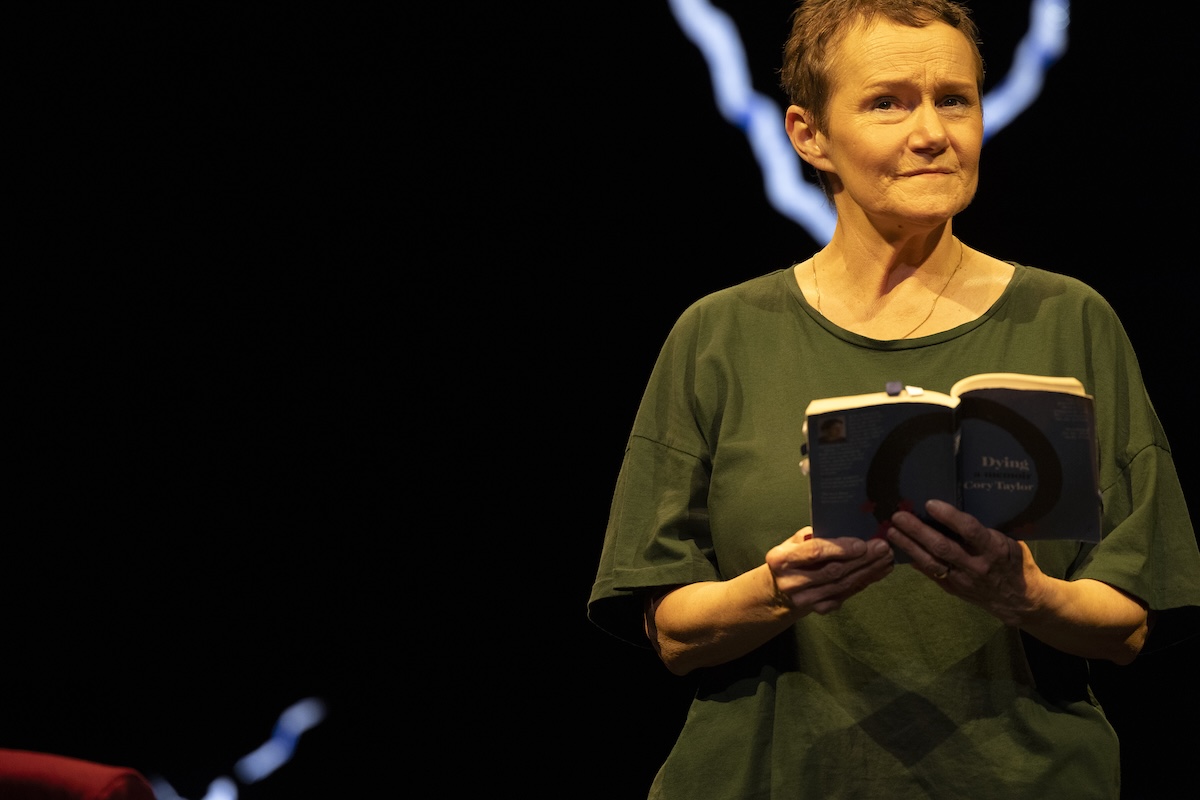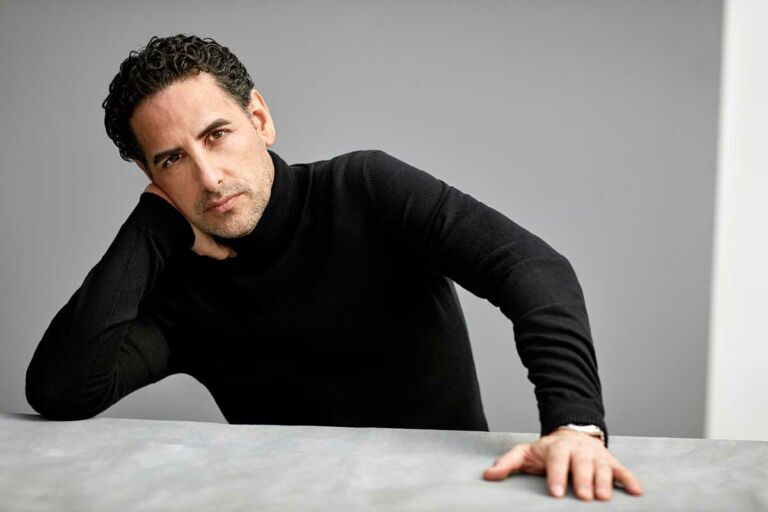I don’t think I have heard such a diversity of post-show opinion as on opening night of Dying: A Memoir. “Not theatre.” “Predictable.” A retired palliative-care nurse said it “hit home.”
It seems any review of this adaptation of Australian author Cory Taylor’s final work must be a little more subjective than usual.
As someone who fleetingly thinks about death from time to time, with each friend or family member’s passing, and each middle-aged niggle reminding me of my mortality, I find Dying: A Memoir an engaging, welcome opportunity to consider life’s inevitable end more deeply. To confront that frankly scary thing we rarely if ever talk about, through the profound and funny insights of someone forced to confront death when she was diagnosed with terminal cancer.

Genevieve Morris in Dying: A Memoir. Photo © Pia Johnson
Benjamin Law’s adaptation of his late friend’s memoir is sensitively directed by Jean Tong for MTC’s world premiere. On the spartan Fairfax Studio stage, Genevieve Morris plays Taylor with a down-to-earth sensitivity and humour. She also briefly interprets several characters Taylor encountered during her decade-long shuffle off this mortal coil.
A matter-of-fact doctor, for example. Her...
Continue reading
Get unlimited digital access from $4 per month
Already a subscriber?
Log in










Comments
Log in to start the conversation.